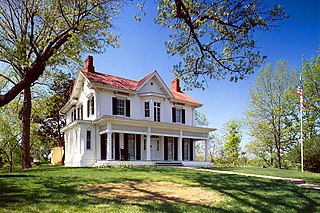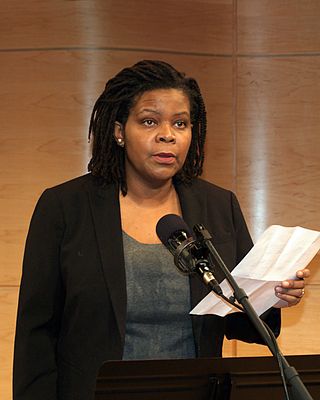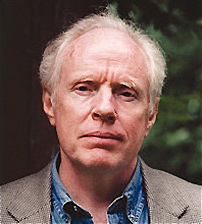
Frederick Douglass was an American social reformer, abolitionist, orator, writer, and statesman. He became the most important leader of the movement for African-American civil rights in the 19th century.

"John Brown's Body" is a United States marching song about the abolitionist John Brown. The song was popular in the Union during the American Civil War. The song arose out of the folk hymn tradition of the American camp meeting movement of the late 18th and early 19th century. According to an 1889 account, the original John Brown lyrics were a collective effort by a group of Union soldiers who were referring both to the famous John Brown and also, humorously, to a Sergeant John Brown of their own battalion. Various other authors have published additional verses or claimed credit for originating the John Brown lyrics and tune.

James McCune Smith was an American physician, apothecary, abolitionist and author. He was the first African American to earn a medical degree. His M.D. was awarded by the University of Glasgow in Glasgow, Scotland. After his return to the United States, he also became the first African American to run a pharmacy in the nation.

My Bondage and My Freedom is an autobiographical slave narrative written by Frederick Douglass and published in 1855. It is the second of three autobiographies written by Douglass, and is mainly an expansion of his first, Narrative of the Life of Frederick Douglass, an American Slave. The book depicts in greater detail his transition from bondage to liberty. Following this liberation, Douglass went on to become a prominent abolitionist, speaker, author, and advocate for women's rights.

The Frederick Douglass National Historic Site, administered by the National Park Service, is located at 1411 W Street, SE, in Anacostia, a neighborhood east of the Anacostia River in Southeast Washington, D.C. United States. Established in 1988 as a National Historic Site, the site preserves the home and estate of Frederick Douglass, one of the most prominent African Americans of the 19th century. Douglass lived in this house, which he named Cedar Hill, from 1877–1878 until his death in 1895. Perched on a hilltop, the site offers a sweeping view of the U.S. Capitol and the Washington, D.C., skyline.
African American literature is the body of literature produced in the United States by writers of African descent. It begins with the works of such late 18th-century writers as Phillis Wheatley. Before the high point of enslaved people narratives, African American literature was dominated by autobiographical spiritual narratives. The genre known as slave narratives in the 19th century were accounts by people who had generally escaped from slavery, about their journeys to freedom and ways they claimed their lives. The Harlem Renaissance of the 1920s was a great period of flowering in literature and the arts, influenced both by writers who came North in the Great Migration and those who were immigrants from Jamaica and other Caribbean islands. African American writers have been recognized by the highest awards, including the Nobel Prize given to Toni Morrison in 1993. Among the themes and issues explored in this literature are the role of African Americans within the larger American society, African American culture, racism, slavery, and social equality. African-American writing has tended to incorporate oral forms, such as spirituals, sermons, gospel music, blues, or rap.
The Gilder Lehrman Institute of American History was founded in New York City by businessmen-philanthropists Richard Gilder and Lewis E. Lehrman in 1994 to promote the study and interest in American history.

William Shield McFeely was an American historian known for his Pulitzer Prize-winning 1981 biography of Ulysses S. Grant, as well as his contributions to a reevaluation of the Reconstruction era, and for advancing the field of African-American history. He retired as the Abraham Baldwin Professor of the Humanities emeritus at the University of Georgia in 1997, and was affiliated with Harvard University since 2006.
Neoabolitionist is a term used in historiography to characterize historians of race relations motivated by the spirit of racial equality typified by the abolitionists who fought to abolish slavery in the mid-19th century. They write especially about African-American history, slavery in the United States, the American Civil War and the Reconstruction Era.

David William Blight is the Sterling Professor of History, of African American Studies, and of American Studies and Director of the Gilder Lehrman Center for the Study of Slavery, Resistance, and Abolition at Yale University. Previously, Blight was a professor of History at Amherst College, where he taught for 13 years. He has won several awards, including the Bancroft Prize and Frederick Douglass Prize for Race and Reunion: The Civil War in American Memory, and the Pulitzer Prize and Lincoln Prize for Frederick Douglass: Prophet of Freedom. In 2021, he was elected to the American Philosophical Society.
Benjamin Arthur Quarles was an American historian, administrator, educator, and writer, whose scholarship centered on black American social and political history. Major books by Quarles include The Negro in the Civil War (1953), The Negro in the American Revolution (1961), Lincoln and the Negro (1962), and Black Abolitionists (1969). He demonstrated that blacks were active participants in major conflicts and issues of American history. His books were narrative accounts of critical wartime periods that focused on how blacks interacted with their white allies and emphasized blacks' acting as vital agents of change rather than receiving favors from whites.
James Oakes is an American historian, and is a Distinguished Professor of History and Graduate School Humanities Professor at the Graduate Center of the City University of New York where he teaches courses on the American Civil War and Reconstruction, Slavery, the Old South, Abolitionism, and U.S. and World History. He taught previously at Princeton University and Northwestern University.

David S. Reynolds is an American literary critic, biographer, and historian who has written about American literature and culture. He is the author or editor of fifteen books, on the Civil War era—including figures such as Walt Whitman, Abraham Lincoln, Herman Melville, Nathaniel Hawthorne, Edgar Allan Poe, Ralph Waldo Emerson, Henry David Thoreau, Emily Dickinson, Harriet Beecher Stowe, George Lippard, and John Brown. Reynolds has been awarded the Bancroft Prize, the Lincoln Prize, the Christian Gauss Award, the Ambassador Book Award, the Gustavus Myers Book Award, the John Hope Franklin Prize, and was a finalist for the National Book Critics Circle Award. He is a regular reviewer for The New York Times Book Review.

Annette Gordon-Reed is an American historian and law professor. She is currently the Carl M. Loeb University Professor at Harvard University and a professor of history in the university's Faculty of Arts & Sciences. She is formerly the Charles Warren Professor of American Legal History at Harvard University and the Carol K. Pforzheimer Professor at the Radcliffe Institute for Advanced Study. Gordon-Reed is noted for changing scholarship on Thomas Jefferson regarding his relationship with Sally Hemings and her children.
Vincent Brown is Charles Warren Professor of History, Professor of African and African-American Studies, and Director of the History Design Studio at Harvard University. His research, writing, teaching, and other creative endeavors are focused on the political dimensions of cultural practice in the African Diaspora, with a particular emphasis on the early modern Atlantic world.

Andrew H. Delbanco is an American writer and professor. He is the Alexander Hamilton Professor of American Studies at Columbia University and the president of the Teagle Foundation.

The Puritan is a bronze statue by sculptor Augustus St. Gaudens in Springfield, Massachusetts, which became so popular it was reproduced for over 20 other cities, museums, universities, and private collectors around the world, and later became an official symbol of the city, emblazoned on its municipal flag. Originally designed to be part of Stearns Square, since 1899 the statue has stood at the corner of Chestnut and State Street next to The Quadrangle.

Fergus M. Bordewich is an American writer, popular historian, and editor living in San Francisco. He is the author of eight nonfiction books, including a memoir, and an illustrated children's book.
Manisha Sinha is an Indian-born American historian, and the Draper Chair in American History at the University of Connecticut. She is the author of The Slave's Cause: A History of Abolition (2016), which won the Frederick Douglass Book Prize.

Frederick Douglass: Prophet of Freedom is a 2018 biography of African-American abolitionist Frederick Douglass, written by historian David W. Blight. It was published in 2018 by Simon & Schuster and won the 2019 Pulitzer Prize for History.













